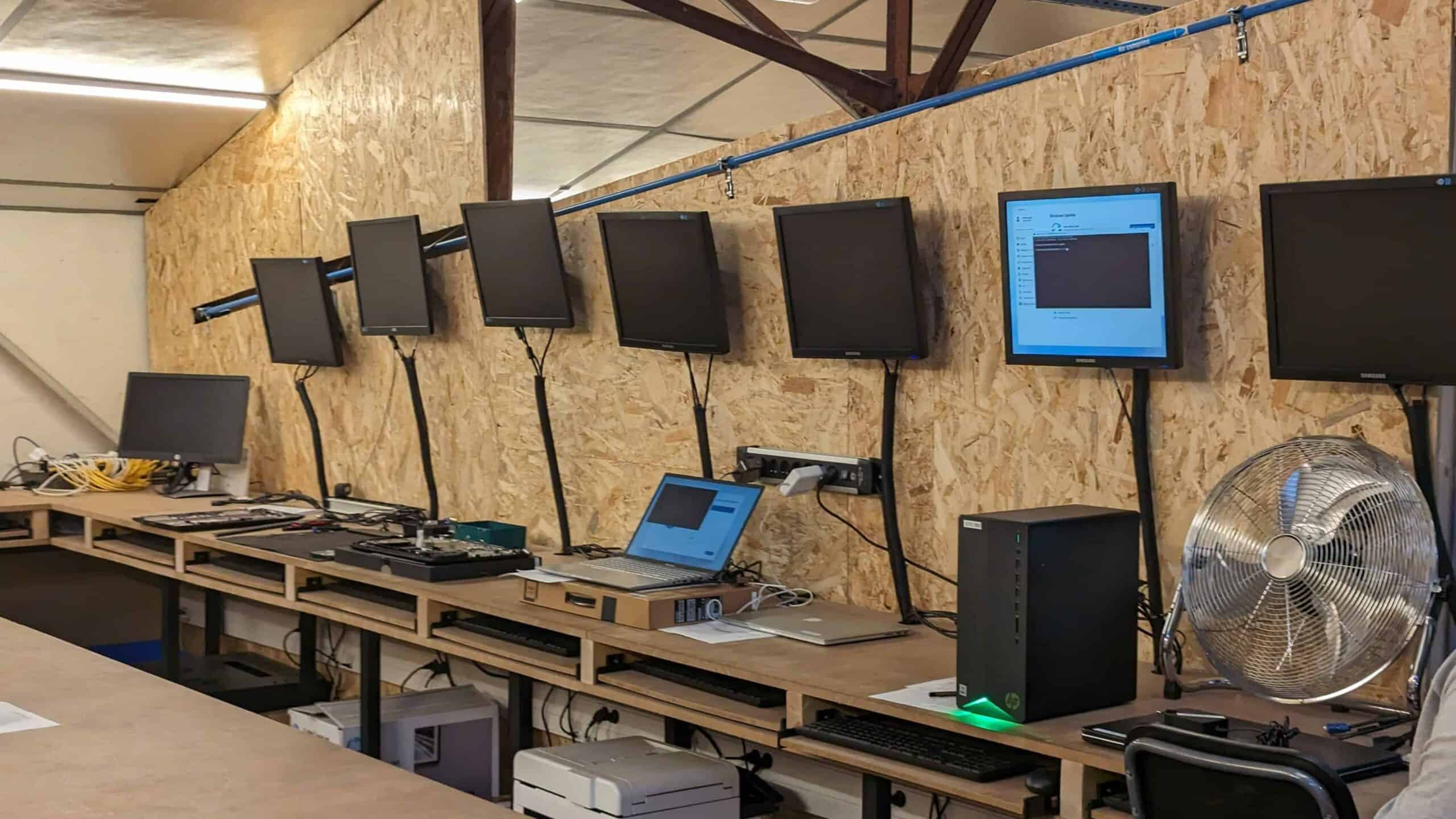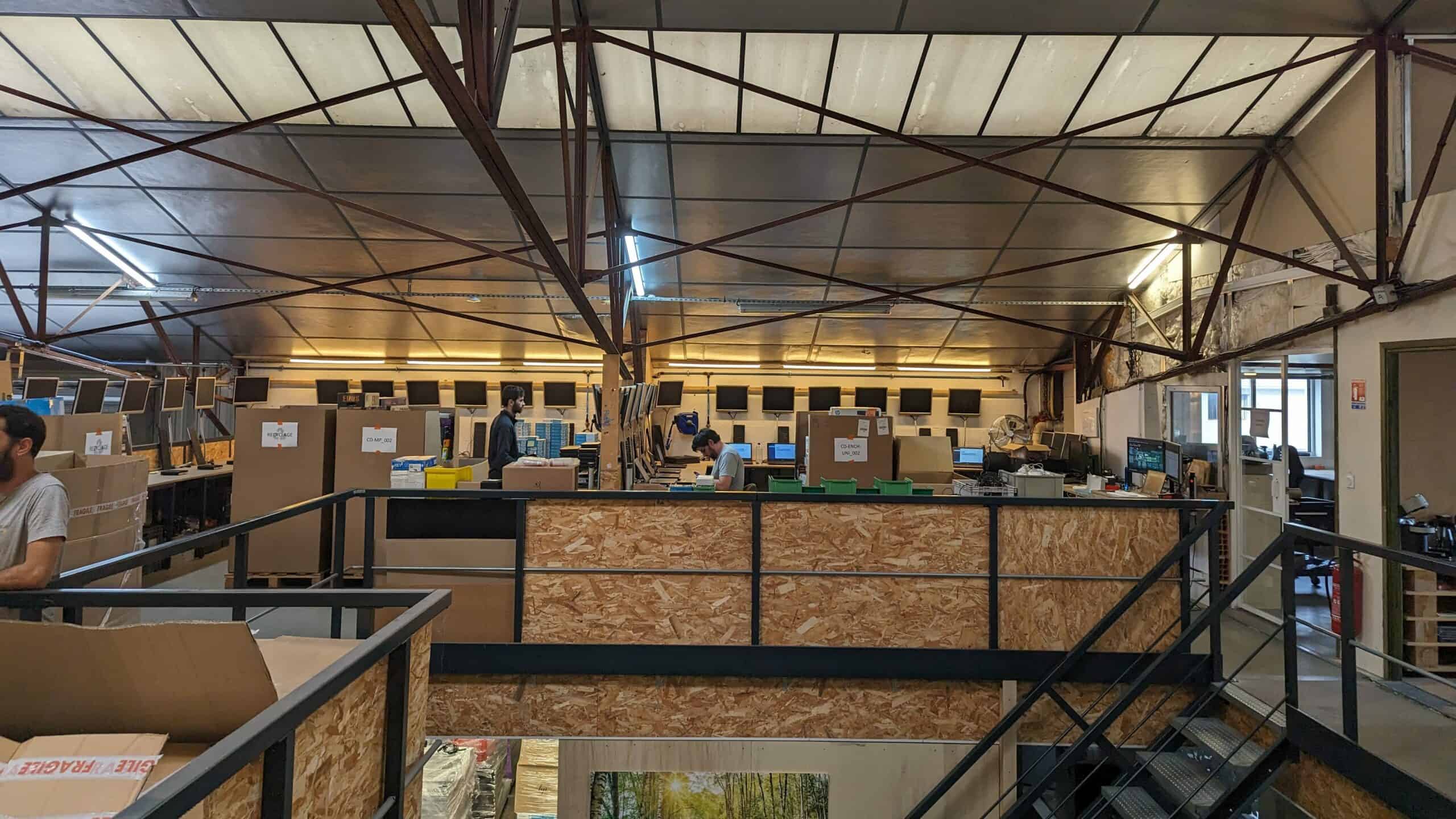Bordeaux is a metropole that is focussing on digital innovation. Bordeaux is trying to digitise as many processes as possible to improve its connection with citizens and businesses. In addition, Bordeaux is using all those innovations and data to reduce CO2 emissions and become energy-neutral by 2050.
The metropole of Bordeaux consists of the city of Bordeaux and several smaller towns in the area. In total 850,000 residents in 28 French districts. In 2014 France introduced a new law which gave metropoles the responsibility to take care of economic development, innovation, energy transition and urban development.
This moved the management and development of all kinds of urban services from smaller municipalities to larger metropoles. The goal is to make services such as waste, water, sewer, transportation, infrastructure and urban development more centrally managed. The vision is that by arranging it at the metropolitan level, many cost savings will be realized without sacrificing quality.
Digital services is also the responsibility of a metropolis
Providing digital services to residents and businesses is also one of the responsibilities of a metropole. We explored this in more detail during our visit to Bordeaux. For example, we spoke with Mathias Hummel, Digital Commons Director at Bordeaux Métropole and Jean-Noël Olivier, CIO at Bordeaux Métropole. They are developing digital services for 18 regional cities, offering regional information and services in a standardized way. In total, there are already some 1,600 digital services. Of these, about 200 are available to the 850,000 residents. The remaining services are mainly intended for the 20,000 civil servants or part of them.
ServiceNow takes center stage in Bordeaux
In Bordeaux, they chose to develop all those digital processes and services on the ServiceNow platform. That ensures that all services are also built within the same platform, and all data is stored there.
Of course, we also reflected on examples of digital services. The people of Bordeaux indicated that not all services are equally advanced. For example, as a citizen, you can do a passport application through the system. You make an appointment through the local platform, but that communicates directly in the background with the national IT system, French Connect, which ultimately processes the application. France still arranges passports at a national level but the citizens can retrieve them locally. In this, digitization has already gone a long way.

However, there are also processes that, after several steps, still end in a simple e-mail to a civil servant. Here, the platform loses the overview of what happens next. That is the least desirable way, but in the public sector, you still can’t always avoid it. The goal, however, is to eventually offer everything as digitally as possible.
Currently, citizens and businesses have access to about 200 digital services, bringing the connection with the citizens much closer. Research also shows that this increases trust in government.
Climate ambitions more achievable through the ServiceNow platform
The ServiceNow platform has been expanded on many fronts in recent years. Data analyses is one of them, but also supplying insight into the impact on the climate. ServiceNow has ESG Management, but during this event we spoke with ServiceNow partner Aguaro. This company offers a solution within the ServiceNow platform that allows organisations, or a metropole, to map their impact on the climate. For example, you can calculate what your organization’s CO2 emissions are. This is based on a huge amount of data. Customers using ServiceNow already have a lot of data in ServiceNow, but the system can also connect to other systems to retrieve data.
Aguaro is very comprehensive. It can map the impact of the IT department, such as equipment purchases and depreciation, as well as staff commuting, business travel by car, train or plane, as well as more simple things like power and gas consumption for offices, data centers or other infrastructure.
Refurbished or recycled?
In Bordeaux, as more processes are digitized, they are increasingly able to map out the consumption of certain activities. They also look at how they can reduce or possibly even eliminate emissions. A great example they showed us was EcoMicro.
EcoMicro is a commercial company with a very social character. It collects all computer-related equipment from citizens and businesses in the Bordeaux metropolitan area, then refurbishes them or, if that is not possible, recycles them. We briefly visited this organization to see how it operates.

In the warehouse, we saw desktops, laptops, smartphones, server racks, monitors, printers, scanners and the like. A method has been developed to refurbish or recycle all these devices. From the metropole, all government organizations bring their discarded equipment to EcoMicro. Businesses and citizens may also do so.
EcoMicro looks at all the systems, maps out the configurations, and tests the systems to see what works and is broken. Then, if necessary, devices are properly wiped so there is no trace of the previous owner. After that EcoMicro goes to work in its production environment to get as many devices working again. Not by ordering new parts, but by using donor systems. For example, if EcoMicro receives 50 desktops or laptops, of which 20 are broken, five systems can be used as donors to use their parts to make the other 20 work again.
After that, all the working systems are sold or, in some cases, given away. That’s where the social component comes in.
EcoMicro is commercial but social at the same time
EcoMicro’s general manager, Julien Maranon, reveals that EcoMicro gives away some 400 PCs each year to people who are unemployed or have very little to spend. To do this, it works with the local government. People distanced from the labor market are also given a chance to work at EcoMicro.
EcoMicro contributes heavily to the climate ambitions of the Bordeaux metropole. Maranon explains that all equipment coming in from the government is weighed. It also tracks exactly which equipment gets a second life as refurbished devices and which systems are recycled. Ultimately, EcoMicro reports to the government the amount of tons of refurbished equipment and the amount of recycled material, for inclusion in the reports. For the Bordeaux metropolis, the EcoMicro organization is important within the ESG (Environment, Social, Governance) vision. EcoMicro helps the metropole on all three fronts. It’s better for the environment. They help people with low incomes to get PCs and offer jobs to people distant from the labor market. It also fits within public sector governance.

Digitization at central and local government differs in Europe by country
During our visit to Bordeaux, we also attended a presentation by Jessica Constantinidis, field innovation officer at ServiceNow. She said that based on research digital leaders within organizations provide 1.8 times more revenue than non-digital leaders. So digitizing and innovating processes has a very positive effect on the revenue of organizations. On the other hand, there is also plenty that goes wrong. Only 25 percent of all digital transformation projects succeed in large organizations.
ServiceNow removes the necessary barriers by offering a platform in which you can digitize any process. In which you can connect any application and then automate it. At the same time, she also made the link to the initial discussions with Bordeaux and the organizations operating there.
The reason Bordeaux is so successful also has to do with user experience. She argues that if you want to meet your ESG goals as an organization or public institution, user experience is hugely important. People today also want to experience a digital service easily. That’s why user experience is so important. Especially now that we have more and more young people who are used to doing everything in apps on their phones. As an organization, you have to respond better to that as well.
Furthermore, she explained from experience that in the public sector, even in Europe, digitization is arranged differently in each country or sometimes even in each region. It is hugely fragmented, and that creates the necessary hurdles. In some countries, they are way ahead and have a single digital identity for all government services. In many other countries, you still have to send everything on paper, signed and by mail. If you take that as an indicator, they are innovating at a swift pace in Bordeaux.
Data is a challenge in many an organization, but especially in the public sector
According to Constantinidis, with the advent of all the new AI services, data is a big challenge. Especially in large organizations and the public sector, they are concerned about compliance. You don’t want your sensitive corporate data or citizen data to end up in an AI model or leaked through AI models.
On the other hand, organizations would also like to use AI to provide better service or do better analysis. Research shows that employees spend about 3 hours per week processing an overload of information. If you can run AI on that information, and summarize it, people can make better and faster decisions.
Organizations need to determine which data can be used and which cannot. Many large organizations started tagging data years ago. What kind of data is it, how sensitive is the data, who owns the data, etc. Based on those tags, it can now better determine whether it may be used for AI purposes.
This has happened much less in the public sector, they are a lot more strict. There is a harder separation between data sources. For example, citizen data is excluded by default because it is privacy-sensitive. However, some citizen data might very well be used anonymously in an AI model. To do so, that data must be reclassified and tagged. That is an enormous amount of work.
ServiceNow rises to the challenge
At ServiceNow, they ultimately see the platform as the solution to many of the challenges and problems mentioned. By automating all the processes in a central platform, you also centralize an enormous amount of data. This also allows you to apply automated tagging and make more data available for innovative solutions.
In the past platform release, ServiceNow has already fully committed to expanding its standard AI solutions with generative AI solutions. That includes making data interpretable and more insightful. With that, ServiceNow can begin to help many organizations. Furthermore, it continues to expand its ability to automate processes and workflows. ServiceNow will stay relevant in the near future.
